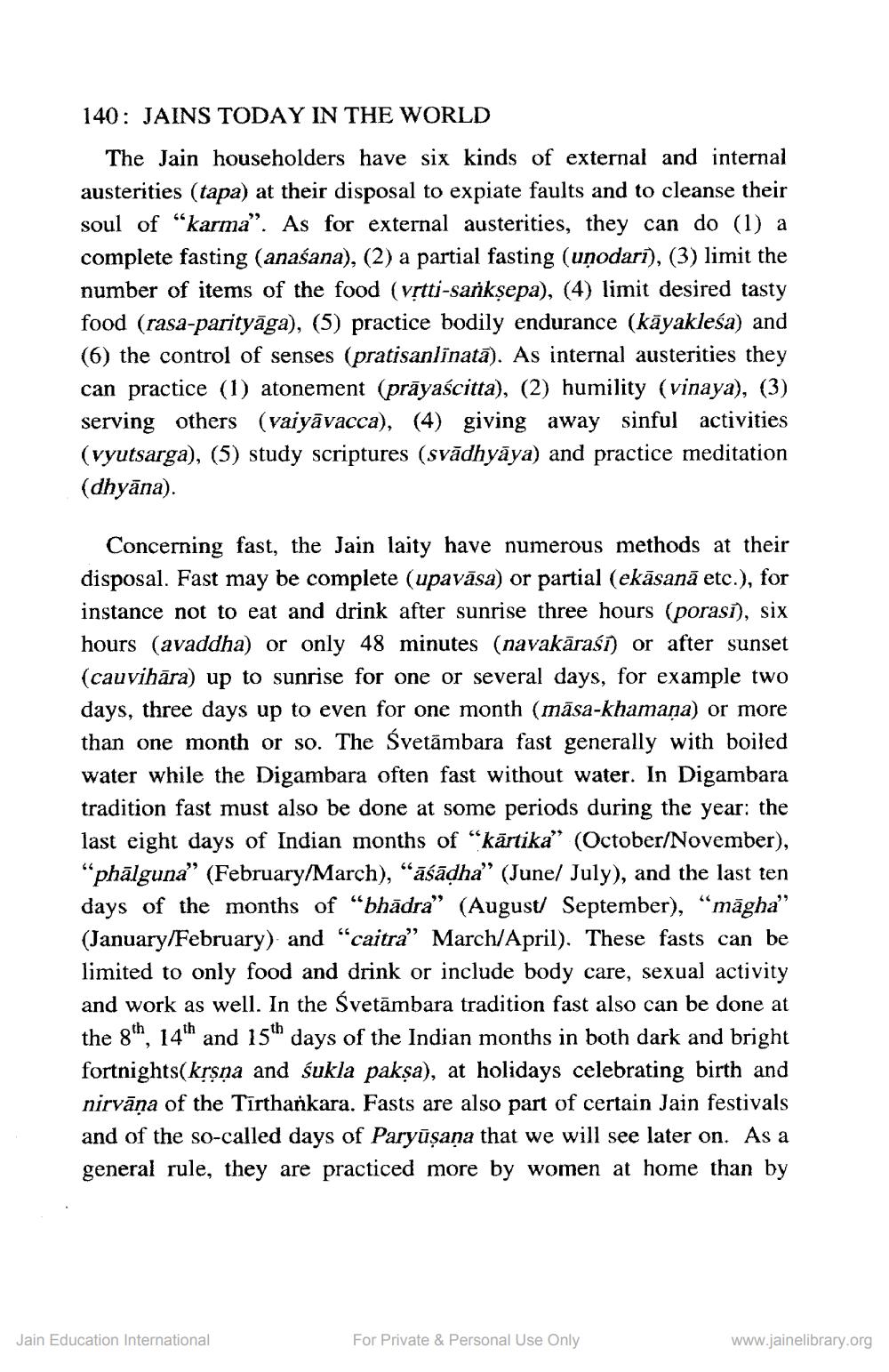________________
140: JAINS TODAY IN THE WORLD
The Jain householders have six kinds of external and internal austerities (tapa) at their disposal to expiate faults and to cleanse their soul of “karma”. As for external austerities, they can do (1) a complete fasting (anaśana), (2) a partial fasting (uņodari), (3) limit the number of items of the food (vrtti-sanksepa), (4) limit desired tasty food (rasa-parityāga), (5) practice bodily endurance (kāyakleśa) and (6) the control of senses (pratisanlinată). As internal austerities they can practice (1) atonement (prāyaścitta), (2) humility (vinaya), (3) serving others (vaiyāvacca), (4) giving away sinful activities (vyutsarga), (5) study scriptures (svādhyāya) and practice meditation (dhyāna).
Concerning fast, the Jain laity have numerous methods at their disposal. Fast may be complete (upavāsa) or partial (ekāsanā etc.), for instance not to eat and drink after sunrise three hours (porasi), six hours (avaddha) or only 48 minutes (navakāraśī) or after sunset (cauvihāra) up to sunrise for one or several days, for example two days, three days up to even for one month (māsa-khamana) or more than one month or so. The Svetāmbara fast generally with boiled water while the Digambara often fast without water. In Digambara tradition fast must also be done at some periods during the year: the last eight days of Indian months of “kārtika” (October/November), "phālguna" (February/March), “āśādha” (June/ July), and the last ten days of the months of “bhādra" (August September), “māgha” (January/February) and "caitra” March/April). These fasts can be limited to only food and drink or include body care, sexual activity and work as well. In the Svetāmbara tradition fast also can be done at the 8th, 14th and 15th days of the Indian months in both dark and bright fortnights(krsna and śukla paksa), at holidays celebrating birth and nirvāņa of the Tīrthankara. Fasts are also part of certain Jain festivals and of the so-called days of Paryūṣaṇa that we will see later on. As a general rule, they are practiced more by women at home than by
Jain Education International
For Private & Personal Use Only
www.jainelibrary.org




